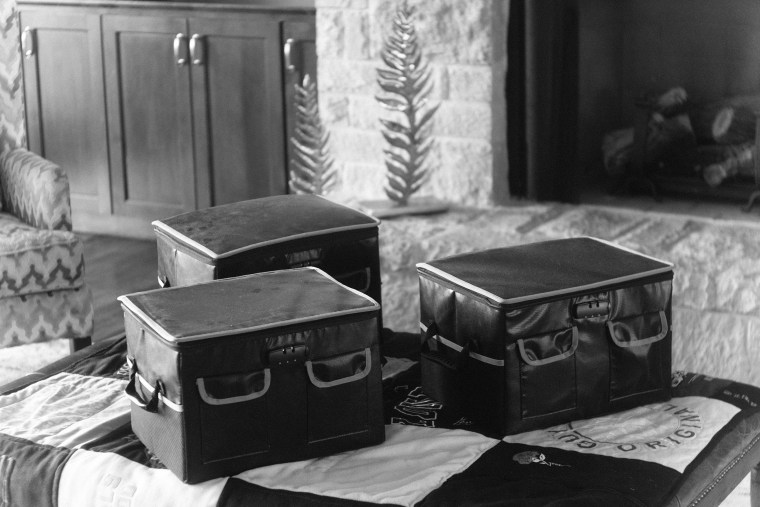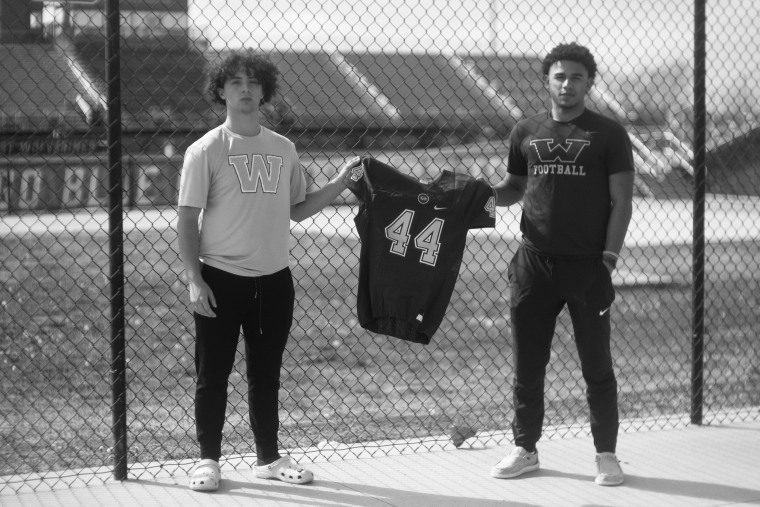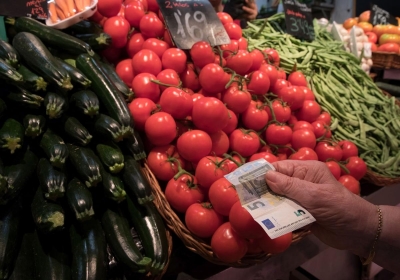Did TikTok videos inspire a teen’s suicide? His mom says she found graphic evidence Monday, 22 April 2024

Editor’s note: This story includes graphic descriptions of videos that refer to self-harm. If you or someone you know is in crisis, call 988 to reach the Suicide and Crisis Lifeline. You can also call the network, previously known as the National Suicide Prevention Lifeline, at 800-273-8255, contact the Crisis Text Line by texting HOME to 741741 or visit SpeakingOfSuicide.com/resources.
It had been four months since Jennie DeSerio’s son died by suicide. Wracked by grief and wondering what she didn’t know, she picked up his phone and decided to go through his TikTok account.
What she found horrified her.
Shortly before he died, she found, her 16-year-old, Mason Edens, had liked dozens of graphic videos about breakups, depression and suicide. She knew Mason had recently been through a bad breakup — she didn’t know what he was watching on a platform that he was increasingly engrossed with.
DeSerio said she found at least 15 videos Mason liked that directly promoted suicide, some of which are still on the platform more than a year later. At least five specifically promoted the method he had used.
NBC News reviewed the videos and found that some had accrued tens of thousands of likes. TikTok uses likes as a signal for its “For You” page algorithm, which serves users videos that are supposed to resonate with their interests.
“I completely believe in my heart that Mason would be alive today had he not seen those TikTok videos,” DeSerio said.
She’s now part of a lawsuit with eight other parents against several social media companies over what they say are product defects that led to their children’s deaths. The lawsuit alleges that TikTok targeted Mason with videos that promoted suicide and self-harm. Their suit is one of a group of lawsuits pursuing a novel legal strategy that argues that social media platforms like TikTok are defective and dangerous because they are addictive for young people. Advocates hope that can be a way for people to get justice for harms allegedly caused by social media.
 The family dog Rylee on Mason’s bed; a football that was among Mason’s favorite items and a memory board in Mason’s room in Centerton, Ark.
Micah McCoy for NBC News
The family dog Rylee on Mason’s bed; a football that was among Mason’s favorite items and a memory board in Mason’s room in Centerton, Ark.
Micah McCoy for NBC News
 Three fire-proof boxes with Mason’s most important personal possessions.
Micah McCoy for NBC News
Three fire-proof boxes with Mason’s most important personal possessions.
Micah McCoy for NBC News
In at least four other active lawsuits brought against TikTok and other social media companies, parents have said TikTok content contributed to their children dying by suicide. In another lawsuit, filed this month, two tribal nations sued TikTok, Meta, Snap and Google alleging that addictive and dangerous designs of social media platforms have led to heightened suicide rates among Native Americans. Google said the allegations are “not true,” and Snap said it was continuing to work on providing resources around teenage mental health.
Suicide is a complex issue, and the Centers for Disease Control and Prevention says it is rarely caused by a single circumstance or event. “Instead, a range of factors — at the individual, relationship, community, and societal levels — can increase risk. These risk factors are situations or problems that can increase the possibility that a person will attempt suicide,” the CDC says on its suicide prevention website.
A TikTok spokesperson said the company couldn’t comment on ongoing litigation but said, “TikTok continues to take industry-leading steps to provide a safe and positive experience for teens,” noting that teen accounts are set to private by default and that teens have an opt-out 60-minute screen time allowance before they’re prompted to enter a passcode.
TikTok has clear policies against content that promotes suicide or actions that could lead to self-harm, but in a sea of billions of videos, some content that glorifies suicide is still slipping through the cracks.
DeSerio said Mason became so hooked on TikTok that he struggled to sleep sometimes, which led to anxiety issues. Friends said he found an emotional outlet on TikTok in particular as he was going through his first heartbreak.
“A 16-year-old boy should never be sent videos like that on TikTok. They’re not going to self-regulate until there’s true accountability,” she said of social media companies.
 Mason’s stepbrother, Anthony, and friend Cory Carl with Mason’s his football jersey at their high school.
Micah McCoy for NBC News
Mason’s stepbrother, Anthony, and friend Cory Carl with Mason’s his football jersey at their high school.
Micah McCoy for NBC News
Mason loved sports and the outdoors.
“We were always playing basketball, throwing the football. We were always just outside doing something,” his friend Braxton Cole-Farmer said. “Mason didn’t like just sitting at home doing nothing. If we didn’t have anything to do, we’d just go drive.”
“He was always there for everybody. If anybody just needed a friend to talk to, he wouldn’t judge you based on what’s going on in your life,” he said.
Cole-Farmer said that Mason would retreat into his phone when he was having a tough time but that it wasn’t a cause for concern.
“I mean, all of us are teenagers. We’re all addicted to our phones. So, like, seeing that, we didn’t really catch a red flag on it, because my generation of teenagers are always on their phone.”













